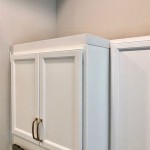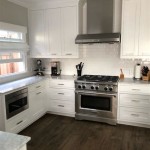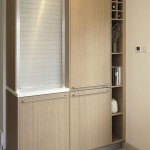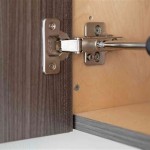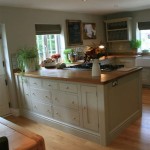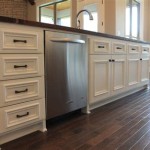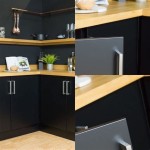Essential Aspects of Kitchen Cabinet Glazing
Kitchen cabinet glazing is a technique that involves applying a protective layer of varnish to the surface of wooden cabinets. This layer adds durability, enhances the appearance, and provides resistance to moisture, stains, and UV damage. Understanding the essential aspects of kitchen cabinet glazing is crucial to make informed decisions about your kitchen's refurbishment or renovation project.
Types of Glazing
There are two primary types of glazing techniques: clear and opaque. Clear glazing allows the natural wood grain to show through, while opaque glazing creates a solid, uniform color. The choice of glazing type depends on the desired aesthetic and the level of protection required.
Materials Used
The type of varnish used for glazing plays a significant role in the finished product. Nitrocellulose-based varnishes are durable and quick-drying, while polyurethane-based varnishes offer excellent resistance to abrasion and chemicals. Water-based varnishes are more environmentally friendly and less odorous.
Application Process
The application process of kitchen cabinet glazing involves several steps, including preparation, priming, glazing, and finishing. Proper preparation ensures a smooth and clean surface to receive the glaze. Priming helps to reduce absorption and enhance adherence. The glaze is then applied in multiple thin coats, allowing each coat to dry before the next. The final step involves a finishing coat to provide additional protection and enhance the overall appearance.
Benefits of Glazing
Glazing kitchen cabinets offers numerous benefits, including:
- Durability: The protective layer of varnish increases the lifespan of the cabinets.
- Enhanced Appearance: The glaze highlights the natural beauty of the wood or creates a desired color scheme, enhancing the overall look of the kitchen.
- Moisture Resistance: The glaze reduces the penetration of moisture, preventing warping and damage.
- Stain Resistance: The glaze creates a barrier that resists stains and spills, making the cabinets easier to clean.
- UV Protection: The glaze contains UV inhibitors that protect the wood from fading and discoloration caused by sunlight.
Maintenance and Care
To maintain the appearance and longevity of glazed kitchen cabinets, regular cleaning and occasional re-glazing are recommended. Use mild detergents and avoid harsh chemicals. Spills and stains should be wiped up promptly to prevent penetration. Re-glazing every few years helps to replenish the protective layer and keep the cabinets looking fresh.
Cost and Value
The cost of kitchen cabinet glazing varies depending on factors such as the size of the kitchen, the type of glaze used, and the complexity of the project. Glazing can be a cost-effective way to update the appearance of an existing kitchen or protect new cabinets from wear and tear. The increased durability and aesthetic appeal can add value to your home.
Conclusion
Kitchen cabinet glazing is an essential aspect of kitchen improvement and maintenance. Understanding the types of glazing, materials used, application process, benefits, and maintenance care is crucial for making informed decisions. By incorporating glazing into your kitchen project, you can enhance the appearance, durability, and value of your cabinetry while creating a stylish and functional space.

Rescuing And Reviving A Glazed Distressed Kitchen Bella Tucker

How To Glaze Kitchen Cabinets

How To Glaze Kitchen Cabinets Diyer S Guide Bob Vila

How To Glaze Kitchen Cabinets Diy Network

Glazed Cabinets Add Traditional Depth Dimension To Any Kitchen

How To Glaze Cabinets At Home With The Barkers

3 Great Reasons To Glaze Your Kitchen Cabinets

How To Glaze Kitchen Cabinets Diyer S Guide Bob Vila

How To Glaze Cabinets At Home With The Barkers

How To Glaze Cabinets Like A Pro
Related Posts

